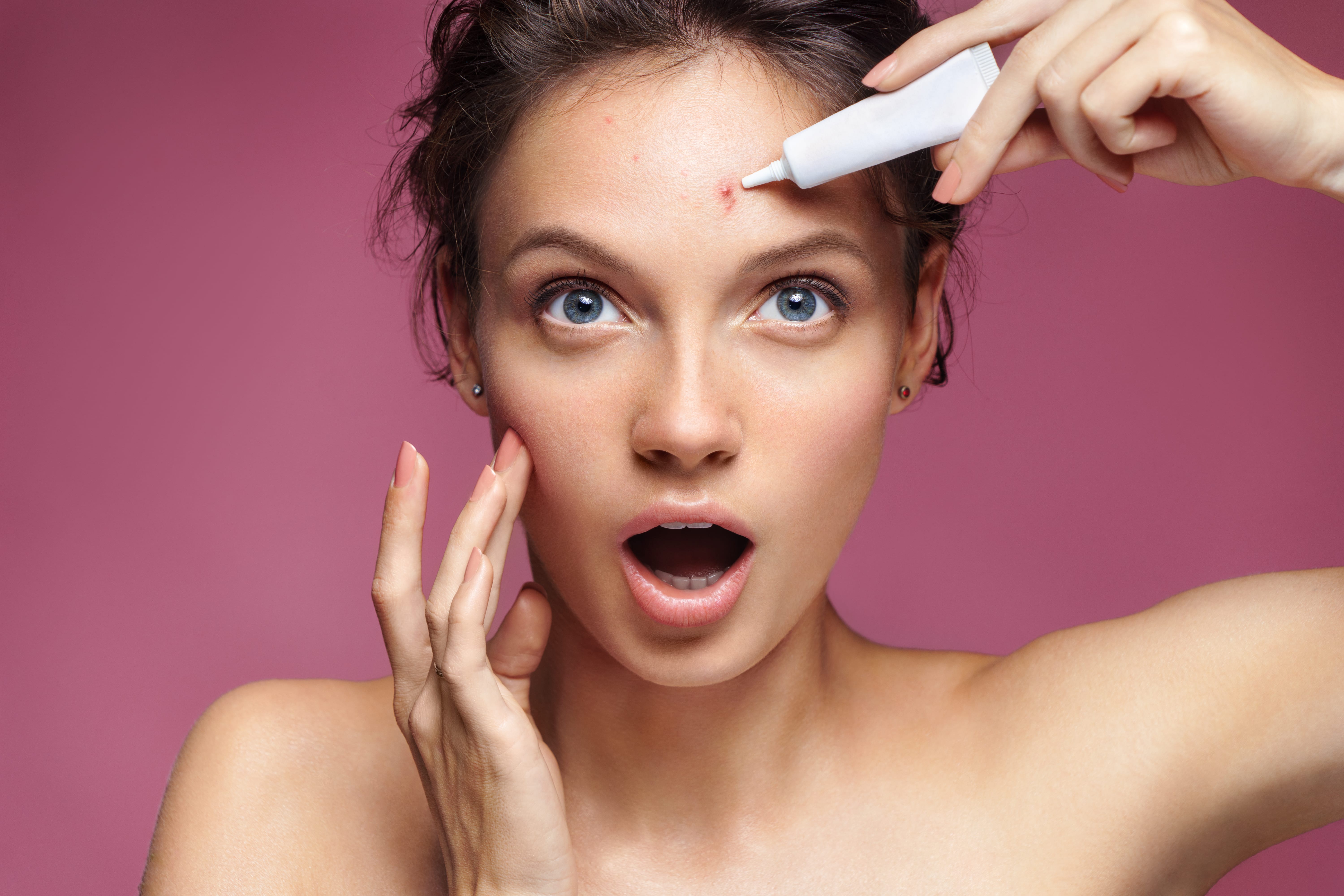We place an immense value on healthy, clear skin and its connection to overall beauty. If you weren’t blessed with a blemish-free face, it can feel like everyone is looking at your breakouts and judging you for them. But you need to remember that your acne is not your fault. More than likely, you notice your acne more than anyone else does. Of course, acne can have a negative impact on your self-esteem and can even be physically painful. That’s why it’s important to talk to your dermatologist about possible acne treatments that might be right for you. It’s also essential that you stop believing the following myths about your acne.
MYTH: Your acne is due to a lack of cleanliness
Those who were lucky enough to never deal with acne may be under the impression that dirty, unwashed skin results in breakouts. Acne is caused by too much oil production and bacteria reproduction, so it may seem logical that washing your face will help. But excessive scrubbing won’t provide a solution. In fact, it will end up making your acne worse because you’ll strip away its natural moisture and cause your body to create more sebum (which can lead to clogged pores and — you guessed it — more zits). If you wash once or twice a day with a gentle cleanser and take care to remove dirt, sweat, and makeup, you’re doing plenty.
MYTH: Moisturizers will just make oily, acne-prone skin worse
It’s easy to understand why you’d think adding more moisture to oily skin would just make a bad situation that much worse. But when you don’t moisturize, your skin thinks it needs to produce oil to compensate for the dryness. You can guess what happens when your body ups its oil production. Moisturizer should be an essential part of your routine, no matter your skin type. Your dermatologist can recommend a moisturizer that won’t aggravate your acne yet will provide the hydration your skin so badly needs.
MYTH: Greasy foods and chocolate will make you break out
There’s been a long-standing debate about whether the foods we eat can cause acne to develop. For instance, a lot of people think that eating greasy foods can lead to excess grease on the face. That isn’t really true, nor is it a fact that eating chocolate will make you break out. However, maintaining a healthy diet and drinking plenty of water can do wonders for your skin. And for some people, dairy and sugar can make acne worse. But as long as you’re eating everything in moderation, you shouldn’t worry about eating a slice of pizza or indulging in your favorite dessert every so often.
MYTH: Tanning can help clear up acne
Some people believe that sun exposure can kill acne-causing bacteria and dry out pimples. But sitting out in the sun will do way more harm than good. Not only are you risking harmful UV ray exposure (and thus, sun damage and cancer), but you may also end up with darker pigmentation and scarring than you’d otherwise have. The sun exposure can also make your breakouts worse. That means that you could have to deal with sunburn and painful zits all at once. As a general rule, you shouldn’t turn to tanning to clear up your blemishes. And if you do go out in the sun, make sure to wear sunscreen. (Bonus myth busting: not all sunblock will clog your pores and make acne worse! Talk to your dermatologist about safe sunscreens you can use.)
MYTH: Only teenagers have to deal with acne
While it’s true that more than 40% of people have acne or acne scarring by their mid-teens that needs to be treated by a dermatologist, it’s not just teenagers who suffer from this condition. Countless adults deal with it, too. In fact, you may suddenly develop acne in your 20s or 30s or continue to battle your blemishes into your 40s and 50s. No matter your age, you should see a dermatologist to explore possible solutions for your condition.
Breakouts are common, but they shouldn’t run your life. To learn more about the options for acne therapy Barboursville WV patients rely on, contact us today.






Leave A Comment